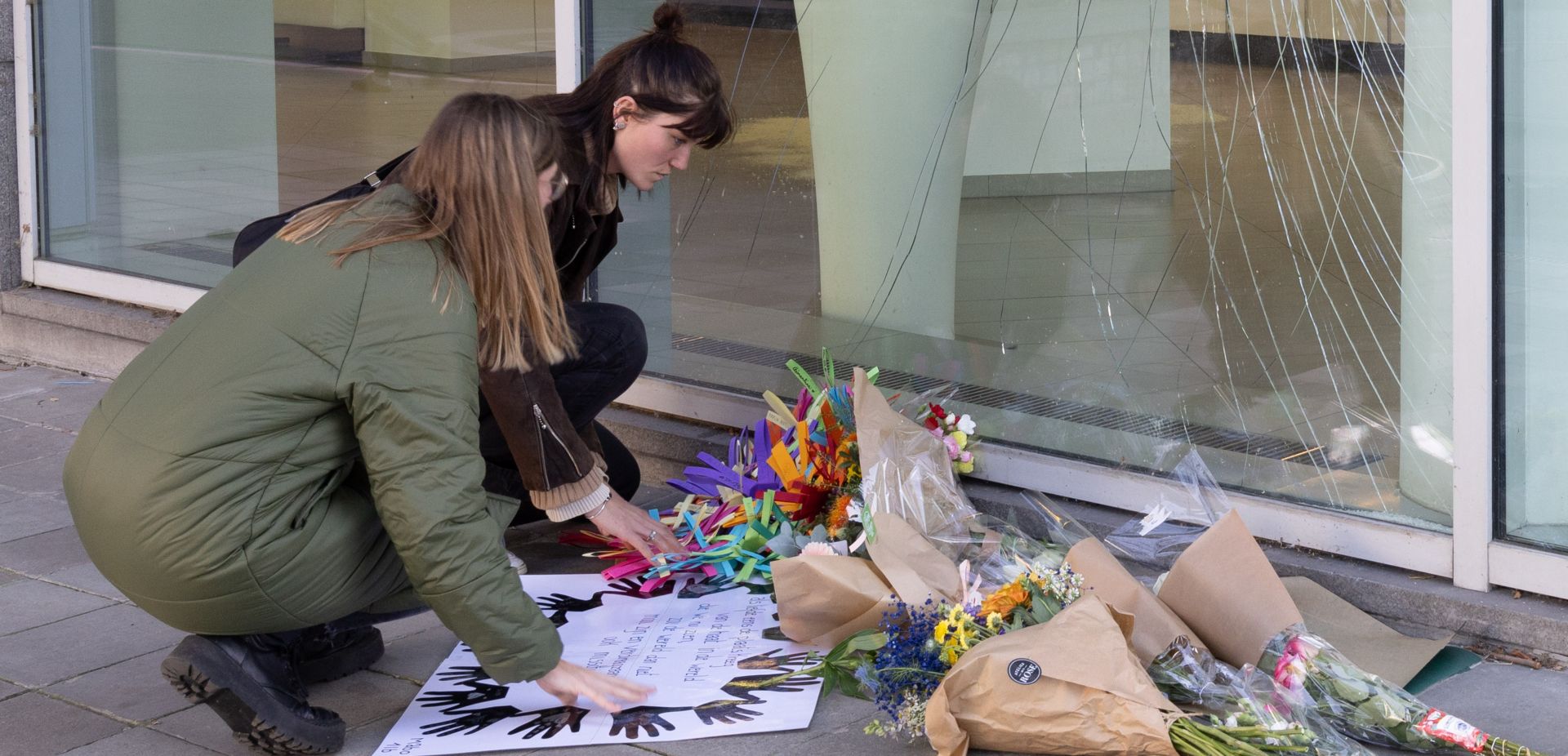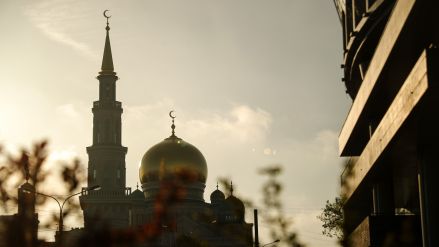When the first rumours of his possible connections with that state emerged after the attack in Brussels, the Swedish Migration Agency was initially unable to find any information in the records. However, after a detailed investigation, it was determined that the man indeed stayed in Sweden from 2012 to 2014.
Abdesalem Lassoued made himself known soon after arriving. In September 2012, he was arrested by the Swedish police in Malmö with 100 grams of cocaine. Further searches of his apartment revealed more drugs and a large sum of money, leading to his sentence of two years and two months in prison. While incarcerated, he requested to be placed in a prison near Norway, citing relatives in the area. He also expressed a desire to learn English and a profession.
 SIGN UP TO OUR PAGE
SIGN UP TO OUR PAGE 
However, the prison service deemed him dangerous. Just three days after arriving at the prison, he threatened a guard, saying he would stab him with a knife. He later explained that this was just an “Arabic saying.” He was placed in a level 1 security institution, where murderers and those serving life sentences are held.
During his time in prison, Lassoued exhibited behaviour that further highlighted his complicated profile. He instructed guards to wait until he had finished his prayers, repeatedly refused to work claiming he couldn’t eat or work due to Ramadan, and refused to provide a urine sample, stating that his religion didn’t allow him to undress in front of other men. He received at least three warnings and was placed in solitary confinement multiple times due to various issues, threats, and fights.
The Swedish Prison and Probation Service reported that he was permitted to have a phone in prison and was visited by a woman initially described as his partner, later identified as his wife, who lived partly in Tunisia and partly in France.
While incarcerated, Lassoued applied for asylum in Sweden. He told his probation officer that if he didn’t receive it, he would have “nowhere to go.” However, his application was denied. The Swedish state took care of his next steps: in March 2014, Abdesalem Lassoued was conditionally released and deported from Sweden.
“He never had a residence permit in Sweden, and after serving his sentence here, he was deported to another European Union country in accordance with the Dublin Protocol,” informs Jesper Tengroth, the press spokesman for the Swedish Migration Agency. The Dublin Regulation assumes that an asylum seeker should return to the first country where they applied for asylum – in this case, Italy.
On a side note – an amusing coincidence: during this period, the centre-right Prime Minister of Sweden was Fredrik Reinfeldt, known for his pro-immigration policy encapsulated by the slogan “Open your hearts.” His government introduced, among other things, free healthcare and dental care for illegal immigrants. This was part of the agreement made with the far-left Green Party, known as the Migration Pact, which Reinfeldt himself described as a “punishment for Swedes” for massively voting for the conservative-nationalist Swedish Democrats. And on October 16, 2023, the same Fredrik Reinfeldt, now as the President of the Swedish Football Association, was at a match in Brussels. When his compatriots were shot down by the terrorist, the former Prime Minister was evacuated by the Belgian police to a safe place. The remaining Swedish fans were held at the stadium until late at night.
2016 was a period of peak terrorist threat in Italy. The Tunisian security services, cooperating with the Italians, identified Lassoued as a “dangerous and radicalised element,” and the Italian police even created a profile of a potential jihadist. The man was also monitored by Italian intelligence and the anti-terrorism service Digos. They determined that the Tunisian wanted to “join the Islamic State and acquire firearms to commit unpredictable acts against Christians and Jews.” As he himself claimed, he was in contact with Abdeslam Saleh, the co-organizer of the attacks on Bataclan in Paris in 2015 and in Brussels in 2016. By then, he was already travelling to Belgium.
The Public Prosecutor’s Office in Bologna initiated preliminary proceedings against him, which allowed, among other things, the wiretapping of both Tunisians and confirmed that they were regularly contacting numbers abroad. However, the proceedings did not yield any results and were suspended.
On May 26, 2016, Lassoued filed another application for international protection. Quite quickly, in June, his asylum request was rejected, and the future terrorist was sent to a centre in Caltanissetta for individuals awaiting deportation. Of course, like most illegal immigrants who have been denied asylum, he filed an appeal, cleverly exploiting European asylum law.
It paid off! The court in Bologna suspended the deportation decision and set the date for the next hearing in 2017, which allowed him to leave the centre with a three-month residence permit in his pocket. By the time the appeal is rejected, he will already be abroad, in another European country – this time in Belgium, where he had already been before.
The Tunisian’s choice was rational from his point of view. Firstly, he already had contacts in the Islamist circles established even before arriving in Bologna. Secondly, the suburbs of Brussels are undoubtedly one of the most Muslim-friendly places in Europe, alongside Britain’s Birmingham or the German metropolises in the Ruhr region, where a truly devout follower of the Prophet can live in accordance with the principles of his religion without bothering about the civilizational norms of Christian society or anti-religious secularism. Thirdly, Belgium is widely known for its liberal approach to migration and asylum issues, which would allow him to file another application with a chance of circumventing European Union procedures.
Despite being denied asylum in Norway, Sweden, and twice in Italy, Abdesalem Lassoued filed another asylum application in Brussels in December 2019. He presented a Tunisian marriage certificate to a Belgian citizen, but the document was not recognized by the office. Almost a year later, in October 2020, his request was rejected, and the Foreigners’ Office issued him an order to leave the country by March 4, 2021. The document was sent by registered mail to the address provided, but the addressee did not pick it up. The police were as ineffective as the postman: they couldn’t find him even though he lived with his wife, and his daughter regularly attended school. Did anyone actually look for him? One might doubt it.
The threat of deportation was not as tragic as it might seem. The Tunisian simply continued to live a normal life. He regularly appeared on police radars, like in 2021 in Genoa, and he was often in Turin, as evidenced by the photos on his Facebook.
Despite the court order to leave the territory of Belgium, Abdesalem Lassoued found refuge in the Islamized Brussels district of Schaerbeek, around Eugène Verboekhoven Square, the so-called bear cage, a jihadist stronghold, one of those no-go zones that supposedly don’t exist in the West. Despite lacking documents and official registration, he led a relatively normal life with his wife, who wore a hijab and worked as a hairdresser. His stepdaughter attended a Belgian school, and he himself frequented the local mosque – from which, at some point, he was expelled due to “too radical comments.” And one day, he packed a gun into a bag and rode a scooter to hunt for Swedish fans.


 SIGN UP TO OUR PAGE
SIGN UP TO OUR PAGE 





